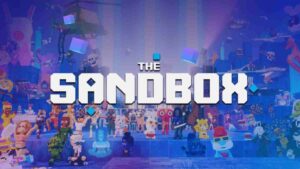Golden Guardians: Survivor launched with modest ambitions in the crowded Web3 auto-battler genre. Built with idle mechanics and NFT integrations, it leaned heavily into collectibility and low-effort play cycles. Now, just a few months later, it’s shutting down entirely.
The team has confirmed that all services will end this week. No roadmap pivot. No relaunch. Just a clean break and a short farewell period before the servers go dark.
Fast entry, faster exit
The game followed a familiar Web3 formula: collectible heroes, automated battles, and token rewards layered on top of a progression loop. It ran on Polygon, with NFTs powering unit ownership and customization. Daily missions and leaderboards encouraged consistent engagement, but there was little to differentiate it from similar projects.
On paper, the structure was serviceable. Gameplay was light and looped around AFK gains, making it accessible even for players unfamiliar with Web3. But in practice, it didn’t gain traction. Without strong retention hooks or standout mechanics, the user base faded quickly.
The game’s closure reflects a larger pattern: many Web3 titles hit the market quickly, but few stick long enough to build lasting ecosystems or communities.
What happens to players and assets
Shutdowns in blockchain games come with added complexity. In this case, NFTs linked to the game will no longer be usable. The team has stated that assets will remain in players’ wallets, but without utility, their value is mostly speculative.
There’s no token migration or plan to repurpose assets elsewhere. That makes Golden Guardians: Survivor another example of how NFT-based game items, without broader interoperability, can lose value overnight.
It’s a harsh reminder that blockchain integration doesn’t guarantee sustainability. If the game fails, the assets lose meaning, regardless of ownership rights.
Larger implications for Web3 gaming
The shutdown points to a recurring issue: too many games in the Web3 space are launching without long-term support structures. The emphasis on early token activity and fast monetization often comes at the expense of meaningful gameplay or community building.
There’s also the problem of attention. Auto-battlers in particular need either strong brand identity or high replay value to survive. Without one or both, even a solid Web3 backend won’t stop the player base from moving on.
Golden Guardians: Survivor wasn’t broken, but it also wasn’t memorable. And in a space defined by hype cycles and volatility, that’s sometimes worse.
Where the genre goes from here
Idle battlers still have a place in Web3, especially for mobile-first audiences. But they need to offer more than just token farming and cosmetic upgrades. Games that don’t evolve past basic mechanics or differentiate their economies tend to fall off fast.
The shutdown may be a small footnote now, but it fits a growing trend of short-lived projects. For players, it reinforces the need to approach Web3 games with caution. For developers, it underlines the importance of designing with longevity in mind. Golden Guardians: Survivor had its shot. It didn’t stick. The space moves on
Web3 Analyst & Play Blockchain Games Guide
CryptoKit breaks down Web3 gaming like it’s second nature. From tokenomics to airdrop strategies, she turns blockchain chaos into clear, actionable advice for players who want to win more than XP.




